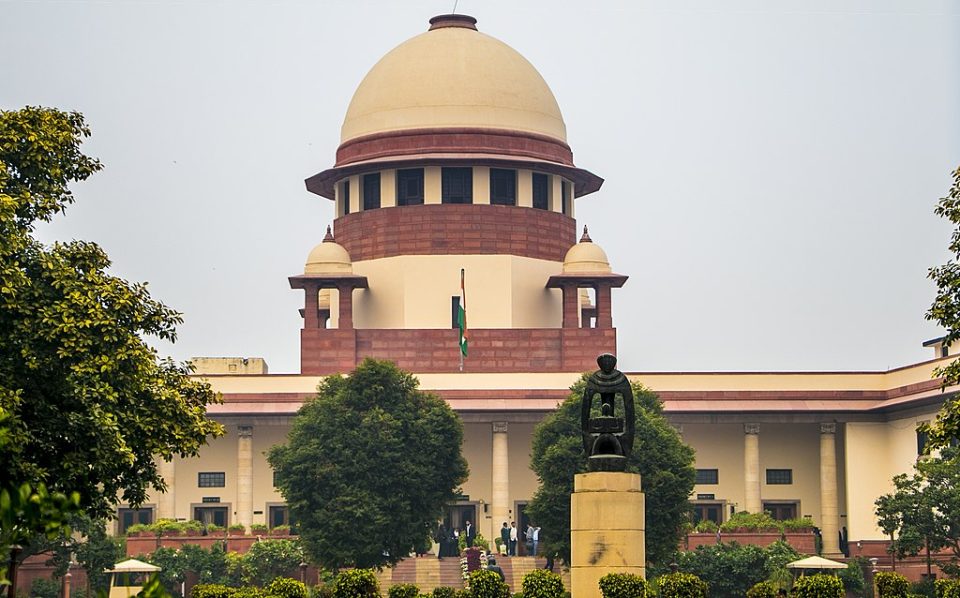
Centre opposes same-sex marriages in SC citing ‘Indian family unit concept’

The Centre on Sunday (March 12) opposed legal recognition to same-sex marriage in an affidavit filed before the Supreme Court.
Tomorrow (March 13), the apex court is set to hear a batch of pleas seeking legal validation for same-sex marriages.
In a written response, the Centre said “living together as partners and having sexual relationship by same sex individuals (which is decriminalised now) is not comparable with the Indian family unit concept of a husband, a wife and children which necessarily presuppose a biological man as a ‘husband’, a biological woman as a ‘wife’ and the children born out of the union between the two – who are reared by the biological man as father and the biological woman as mother.”
Also read: SC to hear pleas seeking legal validation for same-sex marriages on March 13
According to the Centre, “The notion of marriage itself necessarily and inevitably presupposes a union between two persons of the opposite sex. This definition is socially, culturally, and legally ingrained into the very idea and concept of marriage and ought not to be disturbed or diluted by judicial interpretation.”
“The parties entering into marriage creates an institution having its own public significance, as it is a social institution from which several rights and liabilities flow. Seeking declaration for solemnisation/registration of marriage has more ramifications than simple legal recognition. Family issues are far beyond mere recognition and registration of marriage between persons belonging to the same gender,” it added.
According to Monday’s case list uploaded on the apex court’s website, the pleas seeking legal validation for same-sex marriages are listed for hearing before a bench comprising Chief Justice DY Chandrachud and justices PS Narasimha and JB Pardiwala.
The apex court had, on January 6, clubbed and transferred to itself all such petitions pending before different high courts, including the Delhi High Court.
It had said the counsel appearing for the Centre and advocate Arundhati Katju, representing the petitioners, shall together prepare a common compilation of the written submissions, documents and precedents on which reliance would be placed during the course of the hearing.
“Soft copies of the compilations shall be exchanged between the parties and shall be made available to the court. List the petition along with connected petitions and transferred cases on March 13, 2023 for directions,” the bench had said in its January 6 order.
The apex court, in its 2018 judgment, held that Section 377 of the Indian Penal Code (IPC) that criminalised consensual gay sex was “irrational, indefensible and manifestly arbitrary”. It had said the 158-year-old law had become an “odious weapon” to harass the LGBT community by subjecting its members to discrimination and unequal treatment.

